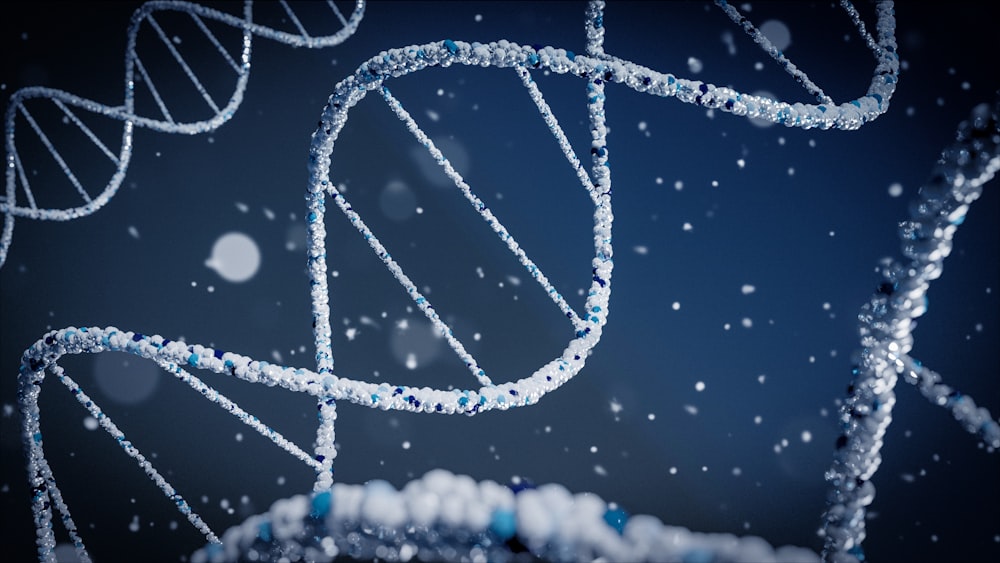Do you feel bloated and gassy when you eat bread or pasta? Does pizza give you acid reflux? You may have celiac disease. Over 2.5 million Americans are currently undiagnosed but suffering from this issue.
Celiac disease can be difficult to pinpoint because it produces over 200 symptoms. These signs manifest differently for children and adults. Many adults who weren't diagnosed at a young age may not even know they have it.
The good news is there is a sure-fire way to find out if you're at risk for celiac disease. A DNA test!
Read on to learn about the symptoms, genetic factors, risk factors and DNA testing for celiac disease.
Celiac Disease Symptoms
Celiac disease is an intolerance to gluten found in food, drinks, and health products. When a person with the disease eats gluten, the villi lining their small intestine become damaged. Damaged villi can't do their job of absorbing nutrients.
There is also coeliac disease. Coeliac disease is caused by an abnormal immune system reaction to the protein gluten, which is found in foods such as bread, pasta, cereals and biscuits.
It's an autoimmune condition, where the immune system mistakes healthy cells and substances for harmful ones and produces antibodies against them (antibodies usually fight off bacteria and viruses).
In the case of coeliac disease, your immune system mistakes one of the substances that makes up gluten, called gliadin, as a threat to the body. The antibodies that are produced cause the surface of your intestine to become inflamed (red and swollen).
Some of the most common symptoms of celiac disease include:
-
diarrhea
-
bloating
-
constipation
-
acid reflux
-
vomiting
-
stomach aches
-
abdominal pain
But celiac disease doesn't only affect the digestive system, it can also produce symptoms throughout the body. Frequently occurring non-digestive signs are:
-
irritability
-
depression
-
headaches
-
anxiety
-
dermatitis herpetiformis
-
infertility
-
canker sores
-
anemia
-
low bone density
-
inflammatory
Health Risks for Undiagnosed Celiac Disease
A celiac disease treatment plan is quite simple. Symptoms and health risks are reduced with a strict gluten-free diet. But what happens if it's left untreated?
Celiac disease has high co-morbidities with other autoimmune conditions and autoimmune diseases. If not managed properly, it can lead to the development of diseases like GI cancers and early-onset osteoporosis. Other linked disorders include:
-
gallbladder issues
-
dementia
-
seizures
-
Type 1 diabetes
-
multiple sclerosis
-
heart disease
Studies show that early diagnosis is crucial in preventing these problems. When diagnosed between the ages of 0 to 2, the chances of developing another autoimmune disorder is about 10%. Compare that to a 35% increased risk when diagnosed after 20 and you understand why initial detection is crucial.
Is Celiac Disease Genetic?
Genetics plays a large role in developing celiac disease. First-degree relatives are at a higher risk of exhibiting symptoms and susceptibility to celiac disease. Families with many family members who have celiac disease, as well as second-degree relatives, also have higher odds.
Scientists have isolated two specific gene variants, part of the HLA genes, found in people who have celiac disease. The HLA genes helps the immune system controls the body's response to protein. Gluten, a natural protein, triggers the immune system to produce antibodies to fight it as if it were a bacteria.
More specifically the HLA-DQ2 and HLA-DQ8 are found to play important roles in the development of celiac disease. HLA-DQ2 and HLA-DQ8 can uniquely present specific gluten-derived peptides, compared with other HLA types that cannot.
If you have a close relative with celiac disease, your chance of developing it is about 1 in 10. That's why early screening is key. But screenings include blood tests and possibly removing a small piece of your intestine.
Taking a genetic test is a non-invasive method of determining your risk of celiac disease. Not only that, but a Sequencing DNA test can check for over 5,000 other genetic diseases giving you more than just test results, but unlocking so much more information regarding your health. If you don't have celiac disease it can tell you if you have gluten intolerance or gluten sensitivity which also affects how your body feels.
How DNA Tests Can Help
Genetic testing has been traditionally used for discovering ancestry and connecting families. But modern DNA tests can go so much further!
All Sequencing tests include information about health, nutrition, beauty, and more. That means one single test can tell you more about yourself and the general population than you ever imagined. Even if you've already taken a DNA test with another provider, we offer a free upload option.
Not only that, but you're in total control. Our wide variety of optional apps and reports allow you to dive deeper into your interests. If you're concerned about your well-being and genetic risk, our health section has 50 extra options for you to explore.
Sequencing offers two types of tests, the Ultimate DNA test and the Ultimate Genome Sequencing service. Though both are very effective, these tests differ in some aspects.
Whole Genome Sequencing
The Whole Genome Sequencing service is the only one of its kind that analyzes 100% of your genome. It's the test that does it all! By examining 3 billion variants, it provides a deep understanding of your genetics.
Ever wondered if you have a unique medication allergy? Or if you're at risk for a rare disease? Want to know about your genetic fitness levels? This test will provide all the answers!
Who is Sequencing?
Sequencing is the largest genetic testing provider worldwide. We're a unique group consisting of doctors, geneticists, bioinformatics experts, and developers. Our goal is to help you live your healthiest, happiest life.
Trust and privacy are essential aspects of our system. With Sequencing, your data is 100% your own. We will never sell or share it with any third parties and you have the right to delete it at any time.
We also offer the unique advantage of secure, confidential genetic counseling! After receiving your results, you can chat online with a certified genetic counselor. So if you do happen to have a high risk of celiac disease or another disorder, you can get instant advice.
Ready to Learn More From Sequencing?
Celiac disease management is simple with a clean diet and attention to ingredients. But not realizing you have celiac disease can lead to many long-term complications.
If you have a family history of celiac disease or autoimmune disorders, getting screened is crucial. Early detection is the best way to protect yourself from future health problems.
Genetic testing for inheritable diseases is the easiest, most convenient way to understand your health. Not to mention all the other unique information you'll learn about yourself!
If you're ready to go in-depth and discover every aspect of your genetics, health, and family tree, get your Sequencing test kit now!


